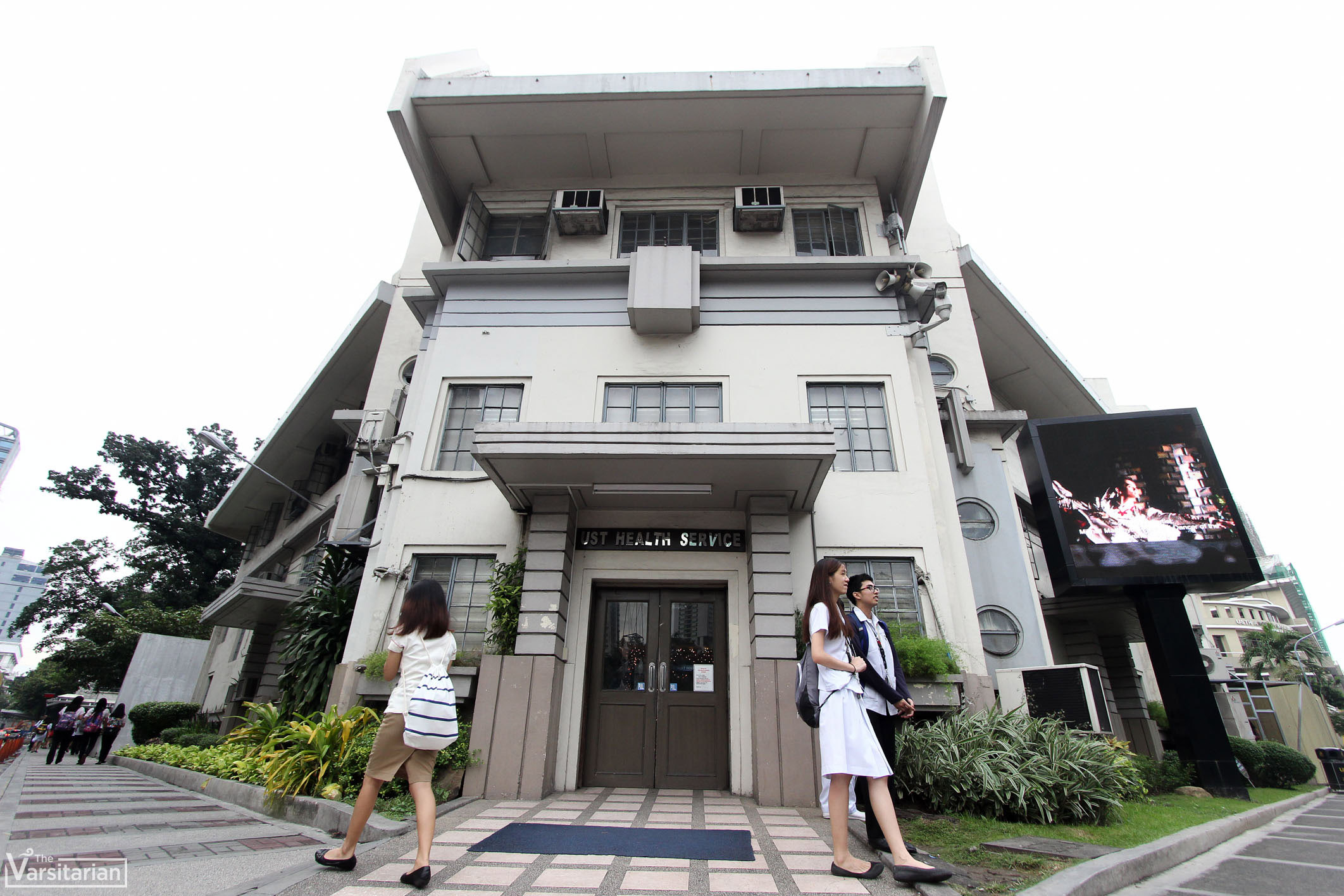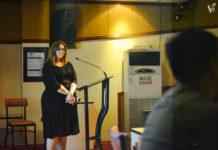SENIOR High School (SHS) students were the “most dissatisfied” with the University’s academic services while the UST Health Service scored lowest in support service, the annual satisfaction survey conducted by the Office of Planning and Quality Management showed.
SHS registered an average score of 2.71, the lowest average among all colleges, faculties and institutes in the University for Academic Year 2017 to 2018. SHS was followed by the College of Architecture and Faculty of Pharmacy, which posted average scores of 2.79 and 2.88, respectively.
John Patrick Nocedo, a senior high graduate, attributed the low scores to SHS’s “experimental” curriculum.
“[S]iguro malaking factor din sa complaints ‘yong ano ba talaga dapat mangyari sa mga ‘performance tasks’ na tinatawag… Mayroong students na nagsasabi na parang hindi naman just ‘yong pagbibigay ng burden ng specific performance task na ‘to,” he told the Varsitarian.
Grade 12 student Jiego Tagaban said the shift to a completely different teaching approach from “integrated” performance tasks to focus group discussions was “shocking” for some students.
“SHS is implementing a whole lot of things in a short amount of time… [H]indi kami nabigyan ng time mag-prepare, para ma-cultivate ‘yong mga ginawa namin. [Hindi rin] kami nabigyan ng time para magawa ‘yong mga extracurricular activities namin,” Tagaban said.
He said the “unstable curriculum” also forces peer evaluation, which could be subjected to the “manipulation” and “biases” of the students assigned to grade each other.
The Varsitarian tried to reach out to SHS Principal Erika Bolanos but she has yet to respond.
A rating of 4 in the University poll means “Very Satisfied,” 3, “Moderately Satisfied”, 2, “Somewhat Satisfied”, 1, “Not Satisfied” and 0, “Not observable or not applicable.”
Long queues, service delay
 The University’s Health Service ranked lowest in support services, registering an average score of 2.70, the only support office that received a grade below 3.00 in key performance rubrics provided by the survey.
The University’s Health Service ranked lowest in support services, registering an average score of 2.70, the only support office that received a grade below 3.00 in key performance rubrics provided by the survey.
Dr. Sheryl Dionisio, assistant director of Health Service, said the long patient queues and delay in attending to students’ needs contributed to the low survey rating.
Dionisio added that there was a limitation in terms of the physical structure inside the Health Service.
“[W]e are trying to improve on our physical structure on our facilities so we are trying to expand to accommodate more patients,” she said.
The expectations of students, she said, were hard to meet given the uneven doctor-to-patient ratio in the Health Service.
“Mostly the students… don’t come on the scheduled time. [It’s actually a burden when they go by bulk and they are rushing for their deadlines… [W]e’re trying to accommodate all our patients but still maintain the quality of care,” she said.
The Health Service is in the process of employing a system that will accommodate online appointments, she said.
“[W]e are also in the process of creating a system for scheduling the physical examination of students online so as to prevent the long queuing lines,” she said.
Top offices
Faculty of Civil Law got the top spot in academic services, posting an average score of 3.61 out of four. The Graduate School and Institute of Physical Education and Athletics settled for second and third place, respectively, with average scores of 3.50 and 3.47.
Civil Law Dean Nilo Divina said the ranking would help “boost” the faculty’s appeal to aspiring law students around the country but admitted that technological facilities still needed improvement.
Civil Law was followed by the Graduate School and the Institute of Physical Education and Sciences with scores of 3.5 and 3.47, respectively. The Office for Student Affairs got an average score of 3.28, the highest in the support service category, followed by the UST Miguel de Benavides Library with 3.23 and the Educational Technology Center with 3.10.
In the administrative service category, the Facilities Management Office emerged on top, with a ranking of 3.33. The Security Office and the Santo Tomas e-Service Providers clinched the second and third spots respectively, with average ratings of 3.20 and 3.16.
The annual survey was conducted between April to May 2018, among 33,296 respondents.




















